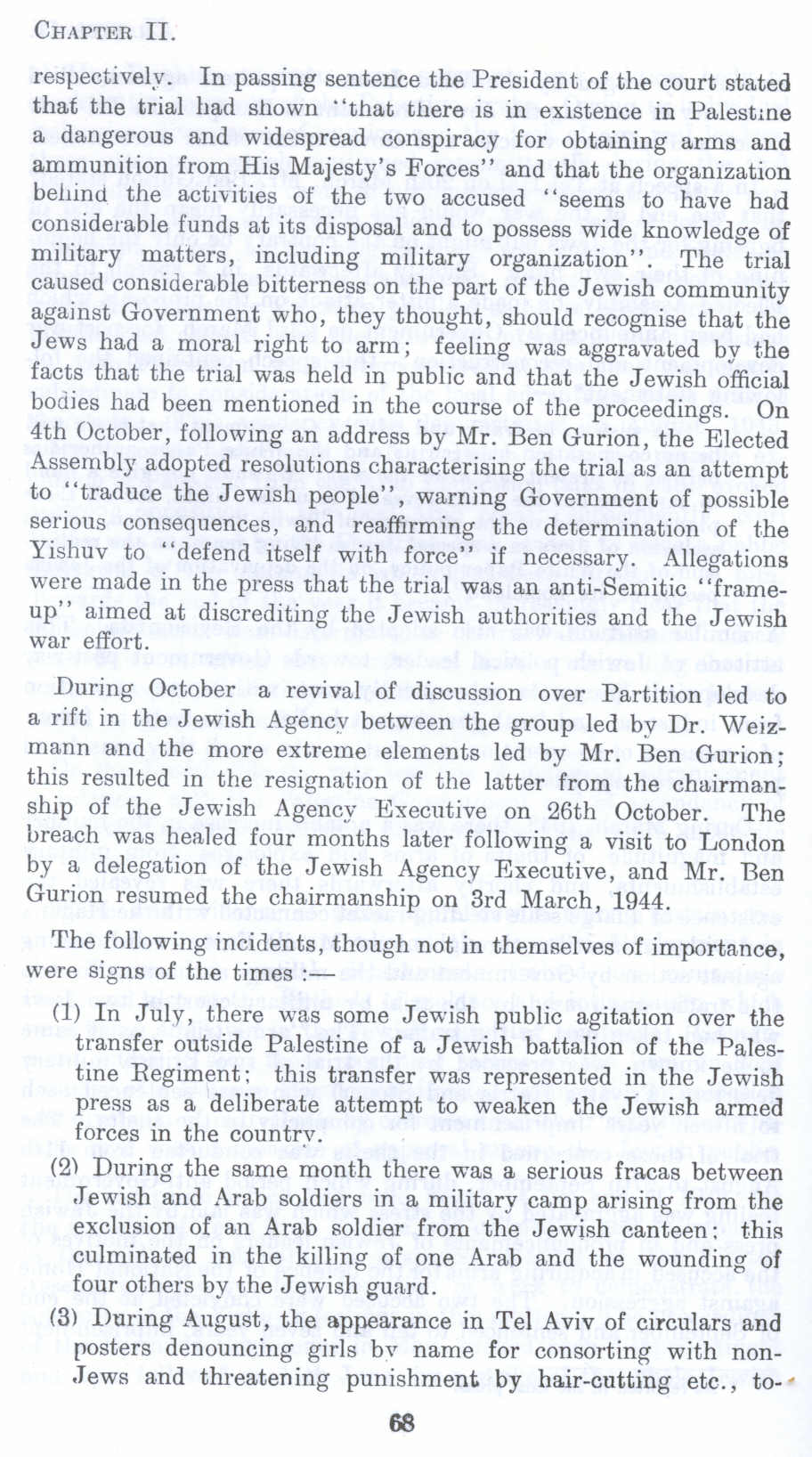| Prev | Next |  |
| Prev | Next |
| PalestineRemembered | About Us | Oral History | العربية | |
| Pictures | Zionist FAQs | Haavara | Maps | |
| Search |
| Camps |
| Districts |
| Acre |
| Baysan |
| Beersheba |
| Bethlehem |
| Gaza |
| Haifa |
| Hebron |
| Jaffa |
| Jericho |
| Jerusalem |
| Jinin |
| Nablus |
| Nazareth |
| Ramallah |
| al-Ramla |
| Safad |
| Tiberias |
| Tulkarm |
| Donate |
| Contact |
| Profile |
| Videos |
British Mandate: A Survey of Palestine: Volume I - Page 68 |
Disclaimer
The above documents, article, interviews, movies, podcasts, or stories reflects solely the research and opinions of its authors. PalestineRemembered.com makes its best effort to validate its contents.


Post Your Comment
*It should be NOTED that your email address won't be shared, and all communications between members will be routed via the website's mail server.
respectively. In passing sentence the President of the court stated that the trial had shown "that, there is in existence in Palestine a dangerous and widespread conspiracy for obtaining arms and ammunition from His Majesty's Forces" and that the organization behind the activities of the two accused "seems to have bad considerable funds at its disposal and to possess wide knowledge of military matters, including military organization.". The trial caused considerable bitterness on the part of the Jewish community against Government who, they thought, should recognise that the Jews had a moral right to arm; feeling was aggravated by the facts that the trial was held in public and that the Jewish official bodies had been mentioned in the course of the proceedings. On 4th October, following an address by Mr. Ben Gurion, the Elected Assembly adopted resolutions characterising the trial as an attempt to "traduce the Jewish people", warning Government of possible serious consequences, and reaffirming the determination of the Yishuv to "defend itself with force" if necessary. Allegations were made in the press that the trial was an anti-Semitic "frameup" aimed at discrediting the Jewish authorities and the Jewish war effort.
During October a revival of discussion over Partition led to a rift in the Jewish Agency between the group led by Dr. Weizmann and the more extreme elements led by Mr. Ben Gurion; this resulted in the resignation of the latter from the chairman. ship of the Jewish Agency Executives on 26th October. The breach was healed four months later following a visit to London by a delegation of the Jewish Agency Executive, and Mr. Ben Gurion resumed the chairmanship on 3rd March, 1944.
The following incidents, though not in themselves of importance, were signs of the times :-
(1) In July, there was some Jewish public agitation over the transfer outside Palestine of a Jewish battalion of the Palestine Regiment: this transfer was represented in the Jewish press as a deliberate attempt to weaken the Jewish armed forces in the country,
(2) During the same month there was a serious fracas between Jewish and Arab soldiers in a military camp arising from the exclusion of an Arab soldier from the Jewish canteen: this culminated in the killing of one Arab and the wounding of four others by the Jewish guard.
(3) During August, the appearance in Tel Aviv of circulars and posters denouncing girls by name for consorting with nonJews and threatening punishment by hair-cutting etc., together
Page 68